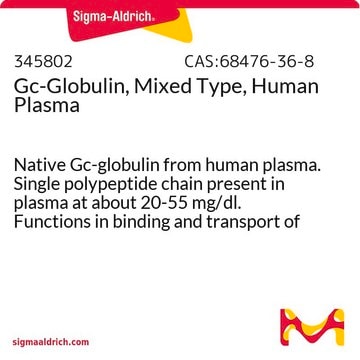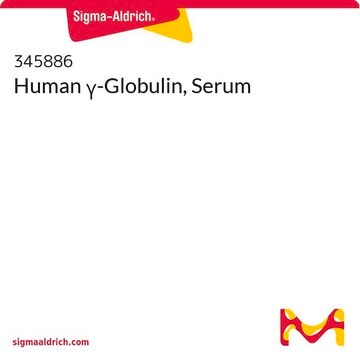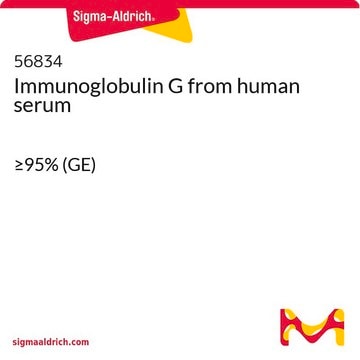G4386
γ-Globulins from human blood
≥99% (electrophoresis)
Synonym(s):
Human γ-Globulin
About This Item
Recommended Products
biological source
human blood
Assay
≥99% (electrophoresis)
form
powder
technique(s)
protein quantification: suitable
impurities
HIV, HCV and HBsAg, source material tested negative
≤4% NaCl
solubility
0.9% NaCl: soluble 50 mg/mL
UniProt accession no.
storage temp.
2-8°C
Gene Information
human ... IGLL1(3543)
Looking for similar products? Visit Product Comparison Guide
General description
Application
Biochem/physiol Actions
Preparation Note
Disclaimer
Storage Class Code
11 - Combustible Solids
WGK
WGK 3
Flash Point(F)
Not applicable
Flash Point(C)
Not applicable
Certificates of Analysis (COA)
Search for Certificates of Analysis (COA) by entering the products Lot/Batch Number. Lot and Batch Numbers can be found on a product’s label following the words ‘Lot’ or ‘Batch’.
Already Own This Product?
Find documentation for the products that you have recently purchased in the Document Library.
Customers Also Viewed
Our team of scientists has experience in all areas of research including Life Science, Material Science, Chemical Synthesis, Chromatography, Analytical and many others.
Contact Technical Service











